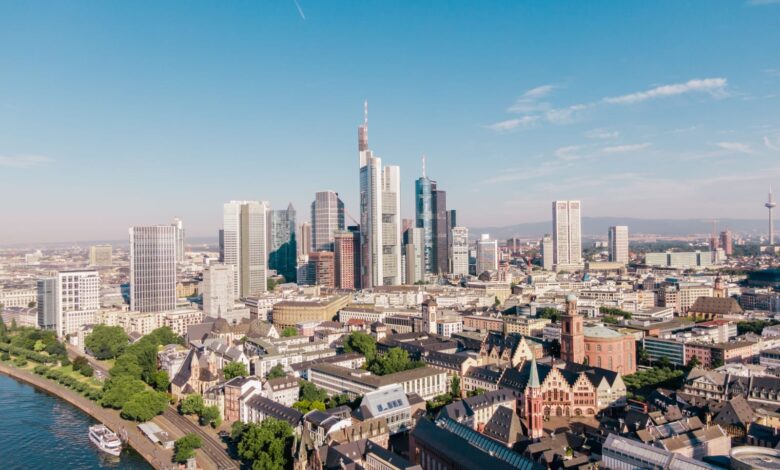Why Germany Remains a Top Destination for Skilled Workers

There’s a strange duality at play in today’s Germany. On one side of the national stage, a familiar chorus grows louder: a right-wing party stirs nationalist sentiment, headlines warn of rising extremism, and televised debates dwell on the “crisis” of immigration. On the other side — away from the podiums and comment sections — the German economy is making quiet, strategic moves to ensure its survival. And at the heart of those moves are foreign professionals.
For skilled workers across the globe, this contrast is confusing. Can a country broadcasting political tension truly be a place to build a career? Many seem to think so — and not without reason.
While the narrative in some media circles fixates on social friction and anti-immigration rhetoric, a different story is unfolding behind office doors, hospital wards, construction sites, and tech campuses across Germany. That story tells of a country facing one of the most significant labor shortages in the developed world. A country with an aging population, shrinking birth rates, and industries that are becoming increasingly reliant on international expertise to function.
It’s no secret: Germany is running out of workers
Each month, over 300,000 job positions remain unfilled. Projections warn of a shortfall of more than seven million workers by 2035. This isn’t a forecast — it’s a reality already visible in critical sectors like healthcare, engineering, software development, and logistics. For these sectors, immigration isn’t an ideological debate. It’s a business necessity.
This gap in the labor force has led to a series of reforms over the past few years — from the Skilled Immigration Act to the newly introduced Opportunity Card — all aiming to streamline the process for non-EU professionals to live and work in Germany. These policies may not grab as much airtime as the more sensationalist headlines, but their impact is substantial. Visa pathways are clearer, residency processes are faster, and employers are becoming more proactive in sponsoring foreign talent.
The irony, of course, is that much of this is happening even as parties like the AfD push anti-immigration narratives. But Germany isn’t run by slogans. It’s run by systems — and those systems, especially in healthcare, infrastructure, and tech, are quietly negotiating with global talent, offering competitive salaries, relocation packages, and long-term job security. These are the facts that don’t trend on Twitter, but they matter deeply to anyone considering a move to Germany.
If the far-right could decide who gets a visa, perhaps the future would look different. But they can’t. And more importantly, businesses — the real decision-makers in the economy — aren’t listening to them. CEOs, hiring managers, and HR departments aren’t vetting résumés based on cultural background. They’re looking at skill sets. They’re solving operational gaps. And increasingly, they’re hiring beyond borders.
In this context, foreign professionals are gaining leverage. Not despite the political noise — but because of it.
The growing labor shortage means even junior candidates with strong work ethics are landing opportunities they might not have accessed a decade ago. And once in, many find themselves progressing quickly. Why? Because the German work environment, while traditionally structured, is increasingly rewarding commitment, consistency, and resilience — qualities that many international professionals bring in spades.
For those who’ve built careers under tougher conditions or adapted to complex systems elsewhere, German workplace culture often feels refreshingly straightforward. Punctuality, clarity, and accountability are valued — and when delivered consistently, they’re rewarded. It’s not uncommon for international workers to outperform local peers in certain sectors, not due to superior knowledge, but because of superior discipline.
That’s not to say racism doesn’t exist. It does. Discrimination, bias, and unequal treatment remain challenges, particularly in housing, customer service, and rural social environments. But there’s a critical distinction: those who voice the loudest complaints about immigration often have no stake in the modern economy. They don’t run companies. They don’t manage teams. They don’t hire nurses or build renewable energy infrastructure.
Professionals don’t compete with extremists. They compete in industries — and those industries are placing their bets on foreign talent.
Cities like Berlin, Munich, and Frankfurt are becoming more international every year. In Berlin alone, more than a third of the population has a migration background. English has become the default language in tech and startup environments. Coworking spaces buzz with conversations in Spanish, Polish, Hindi, Farsi, and Tagalog. Diversity is not a marketing slogan — it’s a logistical solution to a national workforce problem.
This is the Germany that professionals move to. One where visa sponsorship is not just available but encouraged. One where your impact at work matters more than your accent. And one where your future is determined more by your effort than your origin.
Of course, headlines will continue to focus on controversy. That’s what gets clicks. But for someone making a personal, strategic decision about where to invest their career, the question isn’t “Is the country calm?” It’s “Does the country need me?”
In Germany’s case, the answer is clear. The need is real, the systems are adapting, and the opportunities are abundant.
Professionals working in engineering, software, green energy, logistics, and healthcare are being courted aggressively — not just by Germany, but by its competitors. Canada, the Netherlands, Ireland, and Portugal are also simplifying immigration and promoting work-life balance. But Germany brings something extra: economic scale, high salaries, and a reputation for precision and professionalism that still carries global weight.
This competition forces Germany to raise its game. And that’s exactly what it’s doing — albeit quietly.
If you’re thinking about your next move, don’t just read headlines. Read job listings. Check relocation incentives. Talk to people who’ve actually made the move. What you’ll find is not a country in cultural collapse, but a labor market actively restructuring itself to survive — and thrive — through immigration.
For some, that realization will come too late. They’ll wait for the political dust to settle or hope for “better optics” before taking action. But others are already here. Already working. Already growing. And already shaping the very Germany that others still fear from afar.
Because while the narrative outside might be chaos, the reality inside is opportunity.


